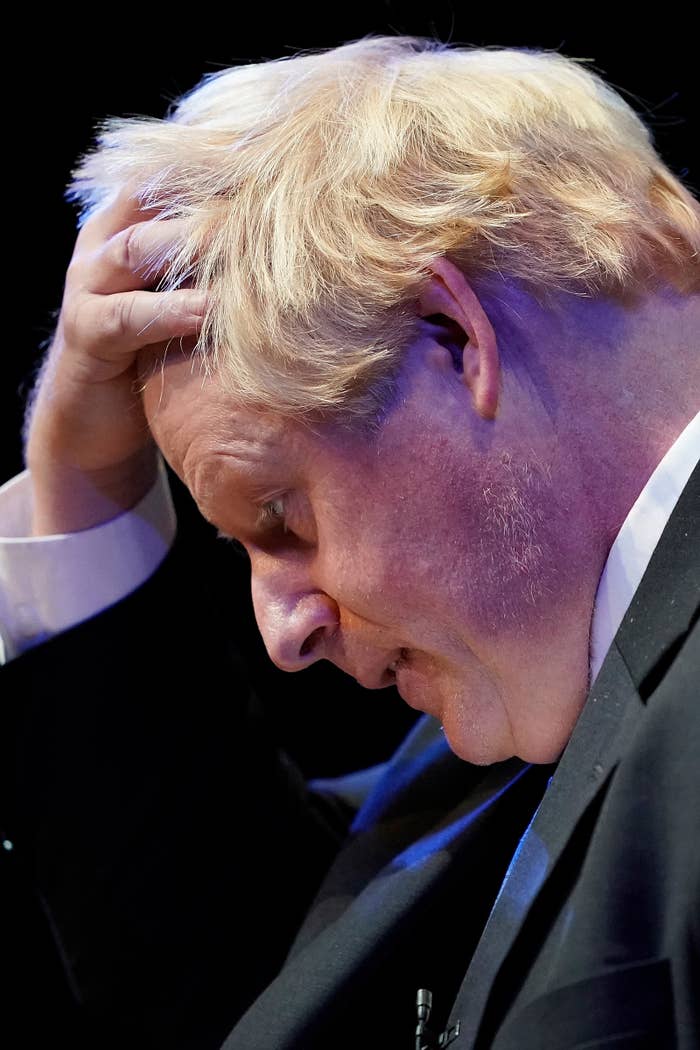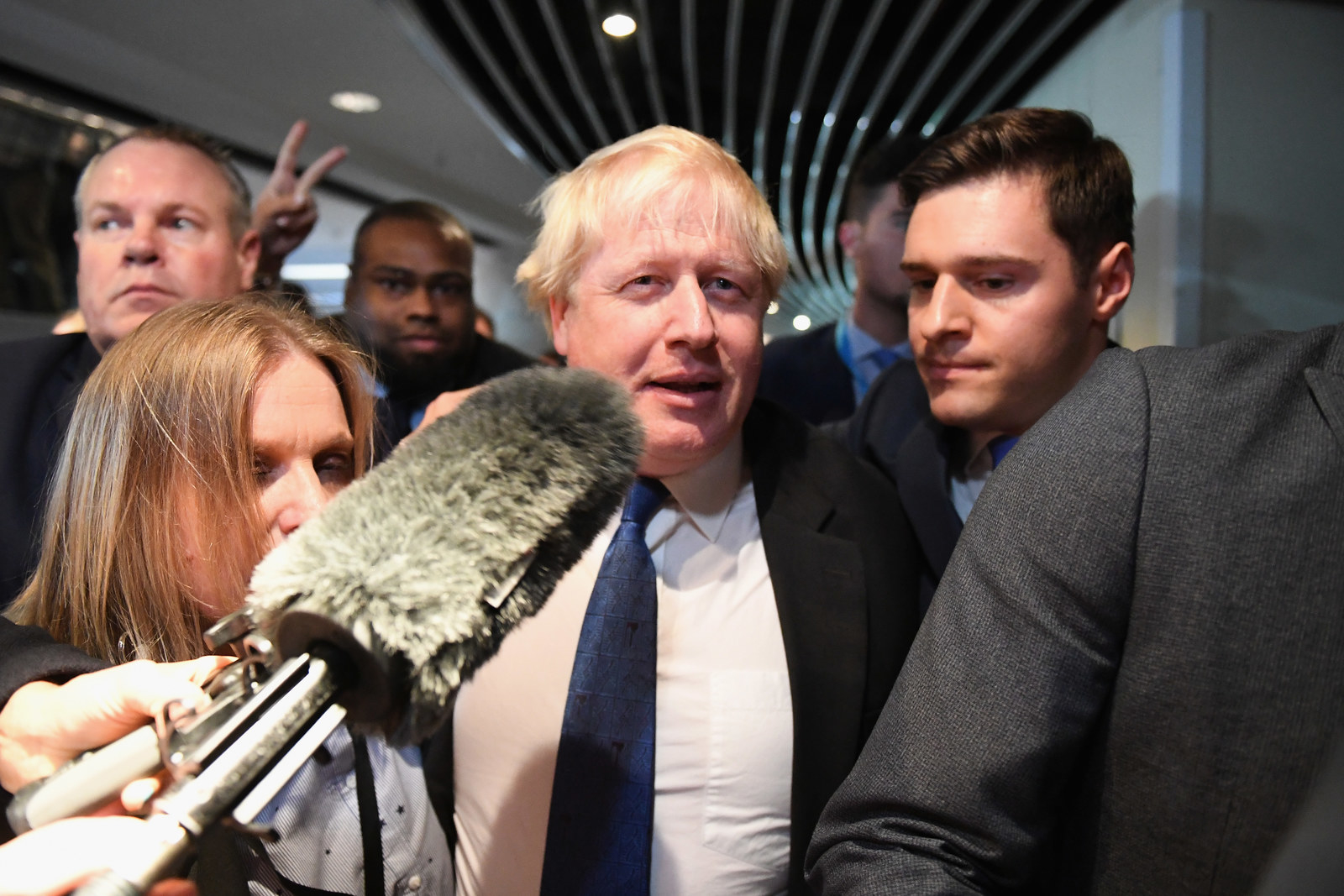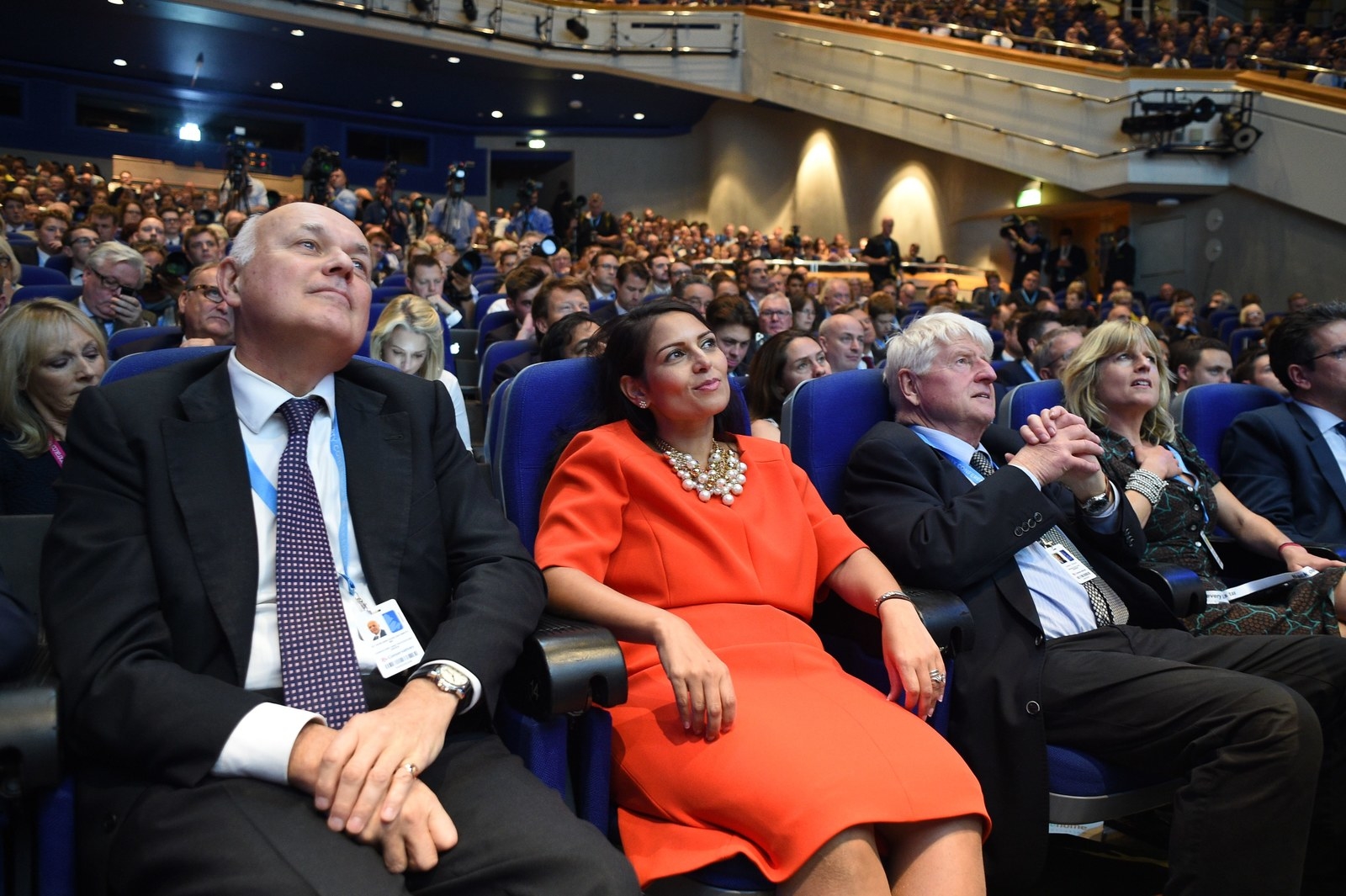
Theresa May’s closing address to the Conservatives’ annual conference on Wednesday is titled “Campaign 2022”, but senior Tories who’ve spent the last three days in Birmingham say they’ve not seen much evidence that their party has a vision for winning the next election.
As expected, this year’s party conference has been dominated by Tory Eurosceptics who are furious about the prime minister’s so-called Chequers plan. But while the Brexiteers make the most noise, they’re not the only ones who are infuriated.
A large group of centre-right Tories are also despairing about the government’s direction – and their chances of winning another election – and this week in Birmingham has done nothing to alleviate those concerns, several told BuzzFeed News.
“We’ve vacated the playing field,” one minister said.
A former minister added: “There’s huge disappointment at the paucity of the prime minister’s and cabinet’s domestic vision. Everyone is talking about the same thing.”
A blazing public row about Brexit, senior MPs openly positioning for leadership, and a series of uninspiring speeches by cabinet ministers in front of mostly-empty halls – with few eye-catching new policies to announce – has done nothing to suggest that this government has the energy or ideas to solve either the country’s long-term challenges or its own, the insiders said.
In truth, given the all-consuming nature of Brexit, few expected this year’s conference to set out many radical new policies, but the attendees said they’ve nevertheless been struck by how uninspiring their government now seems. It’s Jeremy Corbyn who is now setting the agenda on domestic policy, in their view.

Eight years since the party came to power, these moderate Tories worry, they’ve become so listless and directionless on domestic policy that it’s not even clear to voters what the party stands for any more. Crucial questions about the future of the economy and public services – including whether taxes will have to rise to provide more funding for the NHS and other public services – appear to have been kicked down the road, until after Brexit.
It was notable that Boris Johnson’s fringe speech on Tuesday – by far the best attended of the conference – began with a criticism of the government’s failure to get more young people on the housing ladder. The former foreign secretary’s grandstanding irritated a lot of his colleagues, but even MPs who didn’t welcome his intervention said they agreed the party needs to be much bolder in presenting an alternative to Corbyn.
Even Tories who are loyal to May said they thought that this week’s conference has been flat.
The keynote speeches by cabinet ministers in the main hall, have been largely forgettable. Even the Home Secretary Sajid Javid, regarded by many as the frontrunner for the leadership when Theresa May goes, couldn’t attract a capacity crowd.
It’s also been striking that some of the rising stars among the party’s younger MPs – the likes of Johnny Mercer, Rishi Sunak and Tom Tugendhat, who are seen by some as potential future leaders of the modernising camp – have kept low profiles.
To be fair, there has been reforming zeal and imaginative solutions evident in Birmingham – but only at small fringe events hosted by think tanks. “Every event I’ve been to is completely packed,” said Owen Meredith, chair of the Tory Reform Group. “They’re fizzing with ideas.”
On Wednesday, the prime minister will call for the country to come together “in the national interest”, and pitch the Conservatives as the party “not for the few, not even for the many, but for everyone who is willing to work hard and do their best”, according to remarks sent to journalists in advance of the speech.
For many moderate Tories, however, the prime minister’s call for the country to unite hasn’t been backed up by her policies or her rhetoric. In their view, her domestic policies – such as the crackdown she announced this week on unskilled migration after Brexit – are targeted mainly at a relatively small group of Leave voters in working-class towns in the Midlands and the North.

Those Leave voters are important electorally, but the centrists are concerned that the party’s focus on wooing Brexiteers is such that they’re not paying nearly enough attention to other groups they need to reach: under-45s, black and minority ethnic voters, women, students, and Remainers.
“They have misidentified, or are perhaps just in denial about, the nature of the challenge,” Lord Andrew Cooper, David Cameron’s head of strategy in Downing Street, told BuzzFeed News. “They are in effect doubling down on the strategic error of chasing people with a Ukip view of the world.”
“I think that’s right,” agreed a senior backbench MP, adding: “And it’s utter shit.”
This week’s migration policy, which made the front page of the Daily Mail, also caused internal consternation. Government sources said they believed the announcement was brought forward by May’s team to take the wind out of Boris Johnson’s sails prior to his arrival at conference.
It blew the chance of any real publicity out of the water for other pre-briefed announcements, including emergency funding for social care, a new financial crime unit, and a new public health approach to serious violence.
While the mishandling was revealing about the Downing Street operation, it also shows that May’s team are thinking too narrowly about policy, the moderates believe.
The young, minorities, students and Remainers voted heavily in favour of Corbyn at last year’s general election and will need to be won over if the Conservatives are to have a chance at the next election, analysts say.

At the moment, they fear, they’re a long way off doing so. Last week, Jeremy Corbyn set out a left-wing vision at Labour’s annual conference in Liverpool that was widely seen as a campaign platform for an early election.
Tory moderates disagree vehemently with Corbyn’s policy solutions – and think they’d damage the country – but they think he’s in at least in tune with the day-to-day concerns of a large number of voters.
“Corbyn has identified the right issues,” a senior backbencher told BuzzFeed News. “He’s then answered them incredibly badly. But he’s at least identified them.”
In Cooper’s view, the polices May’s administration has proposed have been “trifling”, and do nothing to address the “profound” problems with the party’s brand.
David Cameron spent years trying to broaden the party’s appeal by making it appear more diverse, human and modern, but now, Cooper said, it is seen as toxic by many young, minority and urban voters, as last year’s general election painfully exposed.
There’ll be an electoral cost to that, the modernisers warn. Onward, a think tank run by Will Tanner, May’s former deputy head of policy, forecasts that demographic changes will cost the Tories dozens of seats in the next decade or so if it doesn’t find ways to improve its support among those groups.
Conservative strategists have been arguing for months about whether the Tories can appeal simultaneously to metropolitan liberal voters in seats like Battersea and Brexit-supporting social conservatives in towns like Bishop Auckland, where many people feel like they’ve been left behind.

“It’s not a binary choice,” Tanner told BuzzFeed News. “As long as the party sees it as a binary choice, it will lose the next election.”
Meredith agreed: “I do think it’s possible to build a coalition of those two groups of voters and I think it’s essential. The only way that the Conservative party, or any party for that matter, is going to get a majority in parliament ever again is to build a coalition between those two types of voter.”
For now, many of their colleagues aren’t even looking at these problems because they’re so consumed by arguments about Brexit.
Some are optimistic that these issues won’t seem so acute once the Brexit process is over. “We have a good survival instinct,” Meredith said. “We know how to listen to the electorate. We know the electorate want a united party, and I think broadly the Conservative membership understands that in order to win elections and to govern we need to do that from the centre ground.”
Others aren’t so sure. One centre-right MP said it depends on whether Brexit ends with an orderly exit and the party then reunites, or whether the talks descend into chaos in the next few months.
“If we get this right,” the MP said, “then it shouldn’t be too much of a drama. But the chances of us fucking it up are actually quite high.”
Additional reporting by Alex Wickham.
